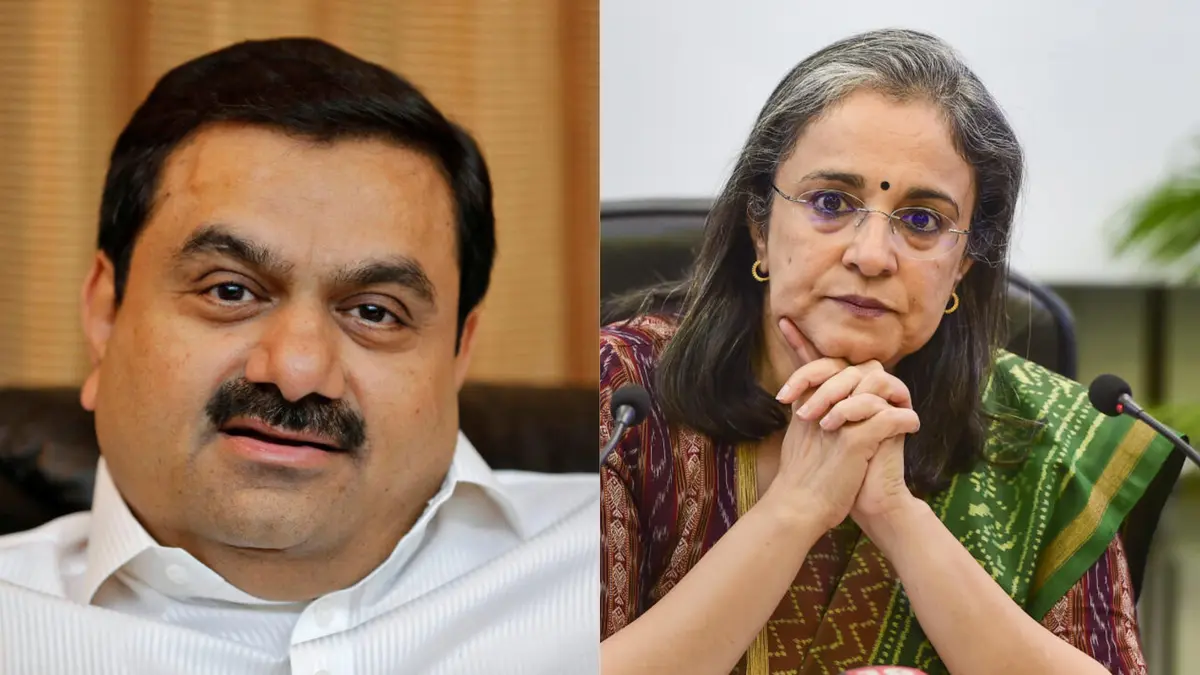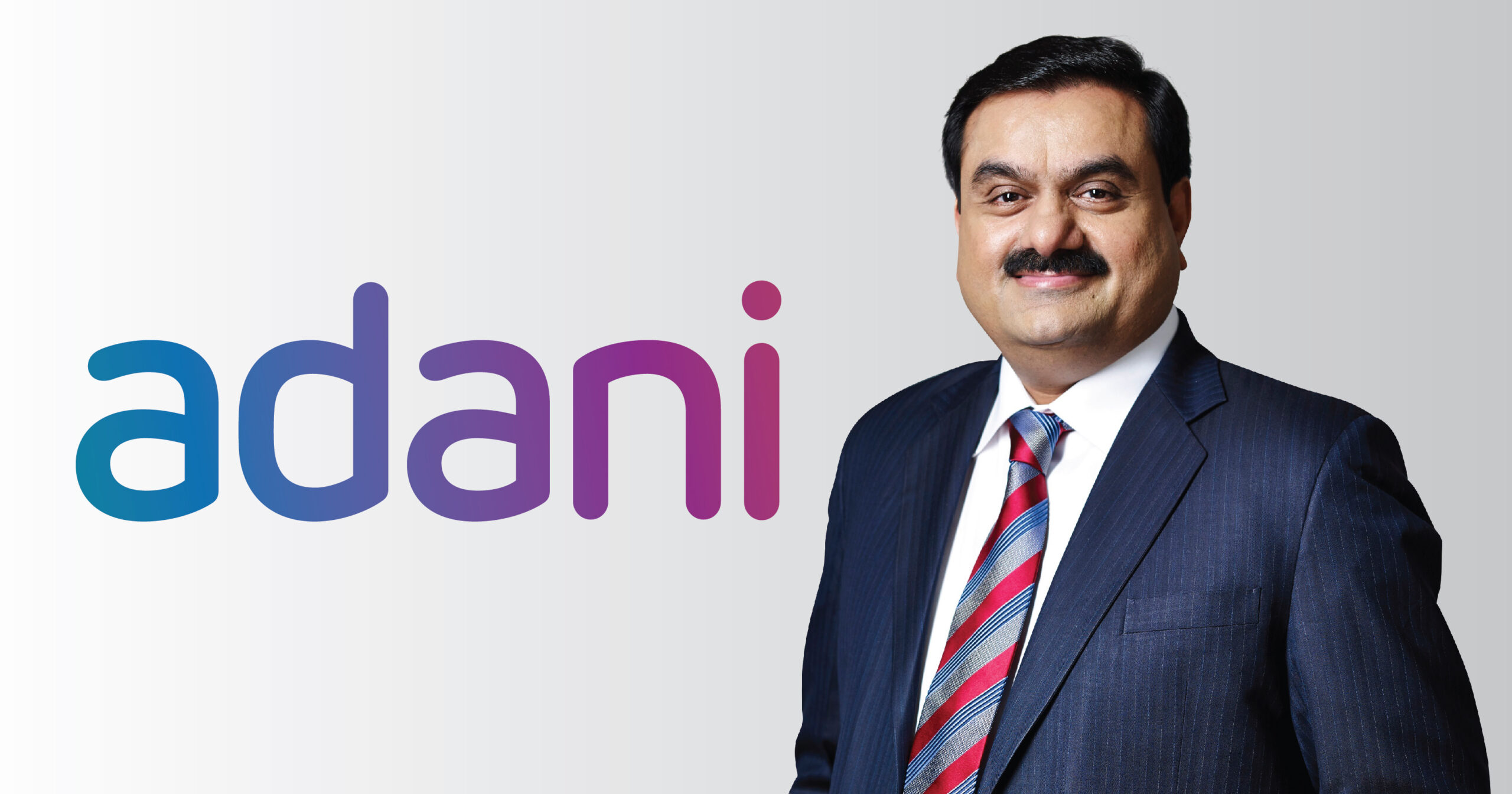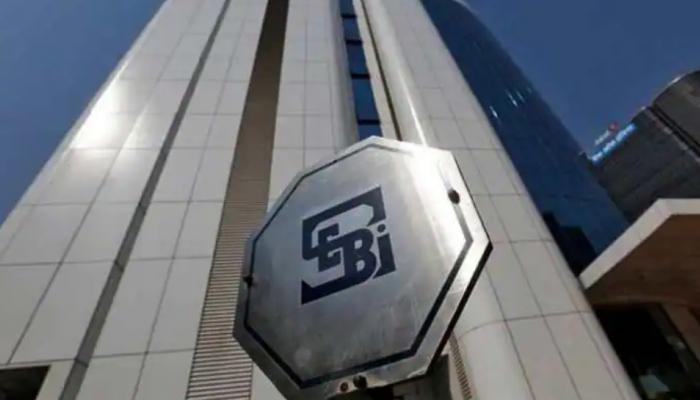If you smell what is Adani cooking: Gautam Adani meets SEBI chairperson Madhabi Puri Buch.

According to sources, billionaire businessman Gautam Adani paid two visits to the Mumbai headquarters of stock market regulator SEBI in less than four weeks. During one of his visits in October, Adani met with SEBI Chairperson Madhabi Puri Buch.
Since Buch took over as CEO in February of this year, Adani has been one of the most prominent corporate executives to visit SEBI. The Group, which has nine publicly traded companies, is now one of the country’s top three corporate houses, with holdings ranging from ports to power, green energy, and cement.
Adani recently acquired a significant stake in Ambuja Cements and ACC, the two most recent additions to the Group. The Group will also likely include NDTV, a publicly traded company, and news channel.
Although the purpose of the meeting was not disclosed, an Adani Group spokesperson told Businessline that both appointments were routine.
Madhabi Puri Buch, who is the new SEBI chairman?
On Tuesday, Madhabi Puri Buch was appointed as the new chairperson of India’s $3.3 trillion stock market ecosystem, the Securities and Exchange Board of India. The government appointed her for a three-year term, succeeding Ajay Tyagi, whose five-year period expired Monday.
She joins when markets are volatile due to the Russia-Ukraine conflict, and India’s largest-ever initial public offering (IPO), Life Insurance Corporation of India, is about to begin.
She showers Sebi with firsts. Buch is the first female stock market regulator in the country. At 56 years old, she is also the youngest chairperson. She is also the first non-IAS person to lead the markets watchdog since 2002 and the first from the private sector.
However, she served for more than 4.5 years as a Whole-Time Member of Sebi, a position just below the chairperson, until October 4, 2021.
Puri Buch has spent over three decades in the financial industry. She graduated from St Stephen’s College in Delhi and IIM Ahmedabad before working as a Project Finance Analyst for ICICI Bank from 1989 to 1992.
She rejoined the private lender in 1997, eventually rising to Executive Director in 2006. Buch was the CEO of ICICI Securities, the ICICI Group’s broking and investment banking arm, from 2009 to 2011.

She was the Head of Marketing and Sales, the Head of Product Development, the Head of Operations, and the Head of Brand Marketing at ICICI.
She was one of a few executives groomed by ICICI Bank founder and former CEO KV Kamath.
Buch worked as the Head of Business Development at Singapore-based private equity firm Greater Pacific Capital and as a consultant for the New Development Bank in Shanghai before becoming the Sebi’s only female Whole-Time Member in April 2017.
She has also served on the boards of several companies, including Max Healthcare, Zensar Technologies, and Innovate Capital.
She also established Agora Advisory, a consulting and incubation firm. She served on numerous committees and oversaw the Market Regulation Department, Integrated Surveillance Department, Department of Economic & Policy Analysis, National Institute of Securities Markets, and Information Technology Department, among others, as a Sebi Whole-Time Director.
After her five-year term expired in October 2021, she was named head of Sebi’s secondary market committee in December.
During her tenure as the regulator, she attempted to instill a culture of extensive use of modern technology and data in her junior staffers. She chaired a technology panel that investigated solutions for the early detection of market anomalies. She once stated that her most significant accomplishment was transforming Sebi into a tech-savvy regulator.
Buch is well-known for making data-driven decisions. She was instrumental in enacting significant changes to mutual fund regulations that benefited investors. These include further lowering the cost of investing, improving scheme classification and disclosure, and introducing additional safeguards for debt schemes.
In her new role, she must hit the ground running, with perhaps the most pressing task being to review the internal governance mechanisms at the exchanges in the aftermath of the NSE’s “yogi” scandal, which exposed flaws in the exchanges’ governance systems.
Gautam Adani will receive the USIBC Global Leadership Award for visionary leadership?
Gautam Adani, the founder of the Adani Group and the world’s third richest person, has been awarded the USIBC 2022 Global Leadership Award. This honor has also been bestowed upon Sundar Pichai and Jeff Bezos veterans. When accepting the award, the world’s third wealthiest person stated that it was given on the 75th anniversary of India’s independence, making it all the more significant and memorable.
The Adani Group’s CEO received an award from the US India Business Council (USIBC) of the US Chamber of Commerce for his visionary leadership.
The Council occasionally hosted an interactive program with the theme ‘Maximizing the Next 75 Years of US-India Prosperity.’ Adani responded by discussing India-America business relations and prospects in depth.
The program was attended by Myron Brilliant, Head of International Affairs of the US Chamber of Commerce, President of the US India Business Council, Ambassador Atul Keshap, and many industrialists and special guests.
Adani stated at the event that the success of the partnership between the two largest global democracies would be one of the century’s most defining relationships, given the rapidly evolving and newly emerging global dynamics. He forecasted that the combined value of the US and Indian GDP would be $70 trillion by 2050. It is responsible for between 35 and 40% of the global economy.
He also emphasized three strategic areas for collaboration between India and the United States: climate change, semiconductors, and health care. Cooling the planet is also critical right now, and it has the potential to be one of the most profitable businesses in the coming decades. Governments have done their part; now it’s up to business leaders to figure out how to work together. This project has already received a $70 billion commitment from the Adani Group.

According to Gautam Adani, while a shared perspective on geopolitical issues is necessary, it isn’t very sensible unless based on a commercial relationship. Global cooperation will suffer if no clear business objectives are established. The role of USIBC in providing an industry voice and connecting with government policies will be critical in this context. He stated that the current world order has enormous needs and that things are on a large scale.
Madhabi Puri Buch? Sebi has no business recommending IPO pricing for new-age technology firms.
On Tuesday, Sebi chairperson Madhabi Puri Buch stated that the capital markets regulator has no business recommending pricing for initial share sales of new-age technology companies. However, she quickly added that companies should disclose more about how valuations have changed between an IPO placement and the price requested in the issue.
“Much has been written about the pricing of IPOs for technology companies… We have no business advising you on the price at which the IPO should be conducted.” Buch made the remarks while speaking at Ficci’s (Federation of Indian Chambers of Commerce and Industry) annual Capital Markets summit.
Buch, the first female Sebi chair and a former banker turned regulator, used the example of a company selling shares for Rs 100 and then asking for Rs 450 in an IPO a few months later.
She stated that a company is free to request a higher price but must disclose what happened in the interim period to justify the significant change in valuation.
It should be noted that there have been concerns raised about investors, particularly unsuspecting retail investors, being misled by the high valuations sought by new-age technology companies. For example, Paytm’s share price plummeted to one-third of the IPO issue price within a few weeks of its listing.
When asked about recent incidents and what can be done to avoid them, Buch deflected the question, stating that investment bankers should be the ones to answer.
Meanwhile, she stated that Sebi is analyzing data and information on retail participation in the futures and options segment, which could result in them receiving additional disclosures.
“Sebi will remain consultative and democratic in its regulatory approach and will be solely driven by data,” she stated.
Sebi has appointed one to three departmental officials as part of a reorganization whose primary resource is to develop regulatory ideas that will make the industry “celebrate,” she said.
According to her, the regulator has also requested changes to the Sebi Act that will allow it to test potential ideas in a regulatory sandbox.
Does Gautam Adani implement a plan to increase Group valuation to $1 trillion?
The market capitalization of the Adani Group has recently been the subject of much discussion, as the returns have taken many by surprise and propelled Gautam Adani to the third spot on the list of the world’s wealthiest people. The value of the Group’s listed entities has risen from $16 billion in 2015 to $240 billion in 2022, but billionaire Gautam Adani’s goal is for the Group to be worth $1 trillion. All of the components of this strategy were put in place in 2015.
On October 10, the Group’s Chief Financial Officer, Jugeshinder ‘Robbie’ Singh, told a roomful of high-net-worth individuals in New Delhi about an incident outlining the Group’s gambit. “Whatever you see today may appear to have happened in the last one or two years, but in reality, what we have done – both GSA (Gautam Shantilal Adani) and myself – we discussed this in 2015,” he said.
In 2015, the Group’s market cap was around $16 billion at the time of the discussion. So given what we had as a group of companies, we believed we should be a $1 trillion group if we had such assets and companies. So we went through the necessary steps to get to the point.”

Since then, the Adani Group has expanded its infrastructure and logistics portfolio to emerging as one of the top five global players, not just India’s most significant. Singh stated that they took steps to transform how the Group functioned at every level to achieve this goal. “When we concluded that we could (execute) these steps, both of us knew at the stage that if we didn’t achieve this, at least two people – Gautam Adani and me – would know we failed,” he added.
Putting It Together Brick by Brick
While market experts have questioned the Group’s entry into cement, the Group has stated unequivocally that it will play to its strengths and focus on its core businesses – mining, infrastructure, and utilities. In addition, adjacencies are businesses that fit well into the Group’s overarching superstructure.
Given the importance of power and logistics in any metals and materials business, the Group has decided to enter the copper, aluminum, and cement industries. Power remains central to the Group’s future growth plans. Adani Green is redefining the future of renewable energy to that end. Adani Green will be the world’s largest solar company by 2020. Adani New Industries, which is currently part of Adani Enterprises, will concentrate on the Group’s entry into the new energy market.
Singh told investors that, for the first time in India’s history, a group portfolio has emerged that ranks among the top five in the world in the entire sector. “If you take the Adani Group’s infrastructure portfolio, the core is among the top five in the world,” he said. Adani Green, Adani Total, Adani Transmission, and Adani Power are among the world’s top five infrastructure portfolios.
It is the portfolio with the fastest growth. Our primary industry verticals of materials, metals, and mining are again adjacent to our core infrastructure portfolio.”
It is not surprising, then, that Adani Ports and Special Economic Zones (APSEZ) was the first company to go from being a mere port operator to integrated port services and logistics player. “The financial year 2021 was a transformational year,” Gautam Adani said in his AGM speech.
No other company operates a port business of this size and scope.” The company expanded its portfolio by adding LNG and LPG operations. Adani’s ports business handles $100 billion in trade each year.
Why Does Adani Want to Get Into the Materials Business?
Earlier this year, the Adani Group emerged as a surprise bidder for Holcim’s cement business in India. While many believe it was an unrelated business venture, the Group has compelling reasons for doing so. Whether it’s paints and cement or metals, 74% of the cost in these businesses is made up of three components: transportation and logistics, power, and extraction. Singh believes the cement industry is similar to any other materials industry in that infrastructure and energy are essential components.
“We never looked at cement as a manufacturing business,” Singh explains. The Indian cement industry, we believe, is inefficient. We can also bring efficient logistics and power to the table. Anyone who predicted ACC and Ambuja’s EBITDA would be off by a factor in the next 9-12 months. The same can be said for copper and aluminum.”
Adani Group can deliver critical raw materials at a lower cost because it has all the necessary clearances.
Because the Group is already the most significant mining services provider in the country, it believes that the development cost of its copper smelter would be one-third that of any other developer in the country, and the same for aluminum. “So, when you hear we’re buying XYZ, I’d like you to see in this chart that the vast majority of our investments are in core infrastructure or adjacent areas.” “We don’t do anything else,” Singh explained to investors.
Surplus cash and a higher credit rating than the sovereign: The Group generates money faster than it can deploy.
Most Adani Group businesses have best-in-class margins. For example, the ports industry has reported operating margins of 70%, while the margins of its closest competitor are 56%. Adani Total Gas reported 41% margins, while Adani Transmission reported 92% operating margins. The companies are profitable and efficient, with high levels of free cash flow.
)
According to Singh, the growth rate is higher than that of some technology companies. The Group currently generates $8 billion in earnings before interest, taxes, depreciation, and amortization. Approximately $3.6 billion of this $8 billion is spent on debt servicing (interest and principal). The Group spends $700 million on taxes out of the remaining $4.4 billion. Businesses spend $1.8 billion on capex, with the remainder of the Group unable to deploy.
While the Group’s debt has increased in absolute terms, so has its EBITDA, according to Singh. Over the last nine years, the Group’s EBITDA has grown at a CAGR of 23%, while debt has grown at a CAGR of 12%. Adani’s portfolio has nearly 41% of the same credit rating as the Government of India.
“We are rated higher than banks, so keeping the money there is a problem for us,” Singh adds. According to the Group’s CFO Robbie Singh, the Group’s portfolio will soon include a company with all of its operations in India that is rated higher than the Government of India.
Growth is driven by global relationships and Capital.
The Group’s portfolio has piqued the interest of global partners such as Total Energies and global funds such as International Holding Company. Total Energies has increased its investment across its company portfolio. Total Energies has invested $4 billion in Adani Group companies, making it the French firm’s largest single minority stake in the world. IHC has also invested $2 billion across its subsidiaries.
Adani Enterprises will serve as the Group Incubator.
Adani Enterprises will serve as the Group’s incubator. Several new businesses are currently being nurtured under the auspices of AEL until they become self-sufficient and can fund their own capital expenditure plans. The Group believes that because its business is the incubation of new businesses, it should not be valued on the basis of a P/E multiple.
Adani New Industries, for example, is AEL’s green hydrogen business, for which the Group has committed $50 billion in capital expenditure over the next ten years. Aside from the new energy venture, AEL will house data centers, airports, and road businesses until they can be self-sufficient and support their own growth ambitions. Over the next 2-4 years, the Group intends to spin off some of these new businesses.
Businesses must meet two conditions in order to operate independently of Adani Enterprises: 1) They can sustain their growth without the assistance of shareholders. 2) No financial cross-holdings are permitted. When a company can stand on its own, it will be demerged from AEL, according to Singh. When hydrogen, airports, and transmission businesses become self-sufficient, they can be demerged within the next 2-3 years. However, Adani Group’s transformation appears to be a 25-year story of growth and ambition.
edited and proofread by nikita sharma




